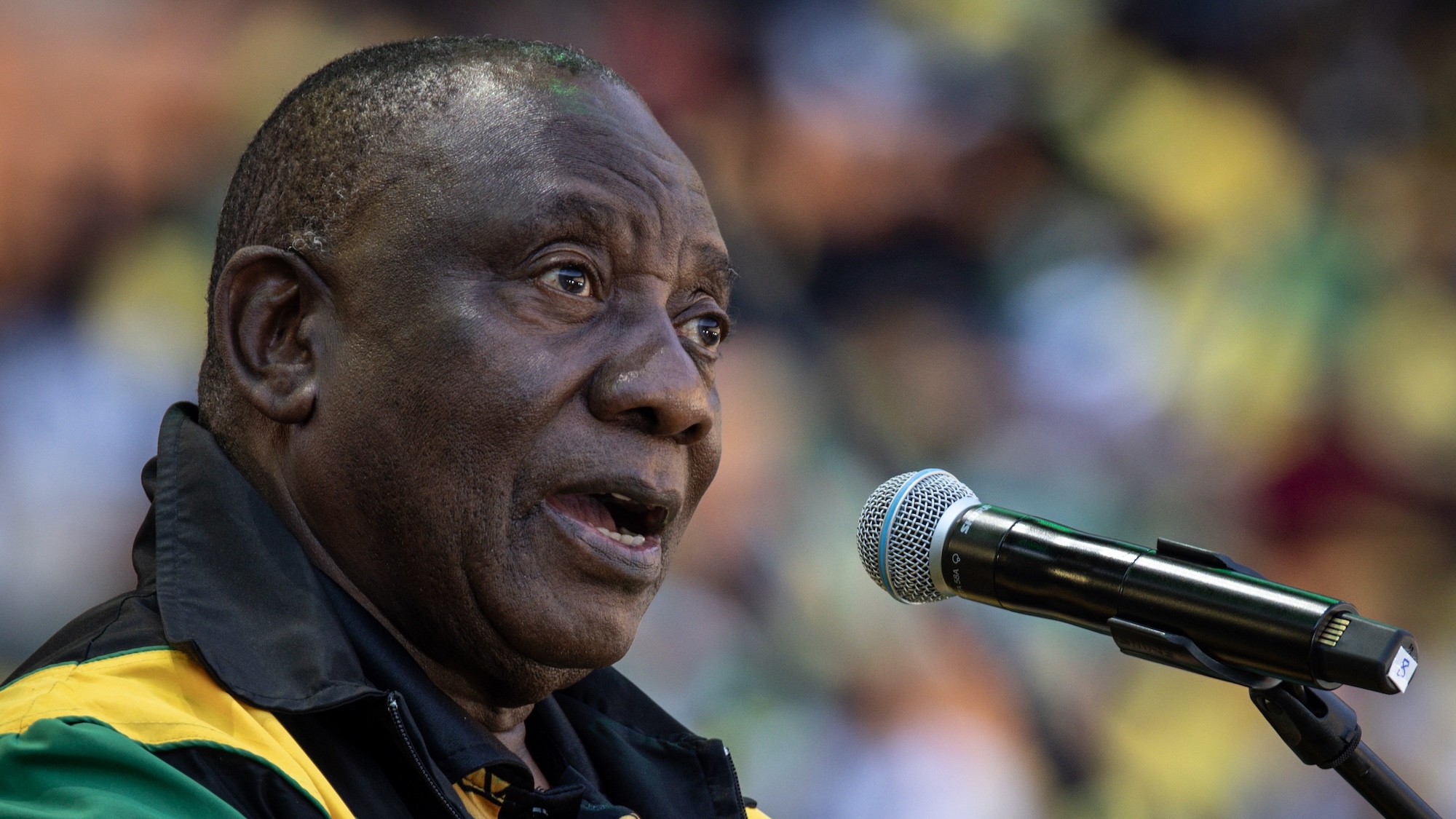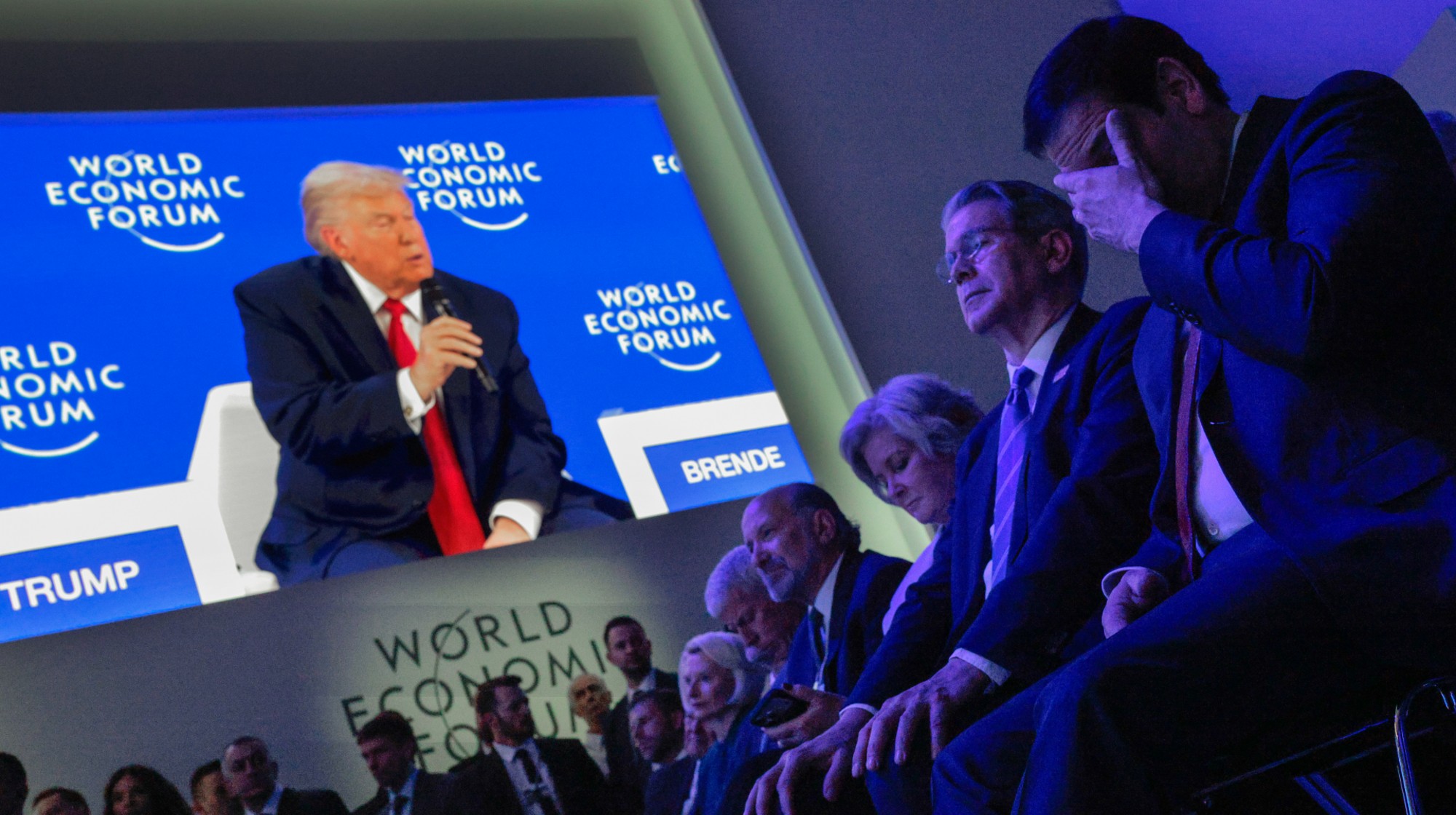Why South Africa's land reform is so controversial
Donald Trump has turned his ire on the Pretoria government over what Elon Musk has called 'openly racist' new laws

A free daily email with the biggest news stories of the day – and the best features from TheWeek.com
You are now subscribed
Your newsletter sign-up was successful
Donald Trump has spoken out against the South African government's new land reform policies, accusing the country of embarking on "land grabs" against "certain classes of people".
South Africa-born Elon Musk, the US president's close ally, has also attacked the policy, referring to "openly racist ownership laws".
President Cyril Ramaphosa has defended South Africa's Expropriation Act, introduced in January, saying that it will "balance the need for public usage of land and the protection of the rights of property owners". Ramaphosa vehemently denied that the policy targets white landowners, as Trump had insinuated.
The Week
Escape your echo chamber. Get the facts behind the news, plus analysis from multiple perspectives.

Sign up for The Week's Free Newsletters
From our morning news briefing to a weekly Good News Newsletter, get the best of The Week delivered directly to your inbox.
From our morning news briefing to a weekly Good News Newsletter, get the best of The Week delivered directly to your inbox.
The US president threatened to cut off funding to South Africa until a "full investigation" is completed. The US committed "$440 million in assistance" in 2023, of which "$315 million was for HIV/AIDS", said Reuters.
What are Trump and Musk claiming?
Trump's claims "re-energise a far-right cause celebre" that the white minority in South Africa are being "marginalised" and "subjected to 'genocide'", said Sky News. Musk has previously accused left-wing party leaders of "openly pushing for genocide of white people".
While Trump's social media posts did not explicitly name the Expropriation Act or the "certain classes" being targeted, he suggested in conversation with reporters that the South African government was "confiscating land". He added: "And actually they're doing things that are perhaps far worse than that," said the BBC.
Trump's accusations come shortly after the "majority white-led civil rights organisation AfriForum said they would lobby for international support", claiming the new law does not "guarantee the protection of property rights", said The Africa Report.
A free daily email with the biggest news stories of the day – and the best features from TheWeek.com
What has the South African government said?
The South African government has vehemently denied it is making discriminatory land grabs. Ramaphosa said in a statement on X that the new law was not a "confiscation instrument" but a "constitutionally mandated legal process" that other countries, including the US, also use to ensure there is "access to land in an equitable and just manner".
Pretoria subsequently said it was "keen to engage diplomatically with the US" over "land reform policy" and that South Africa is "committed to its constitutional democracy", said Al Jazeera.
In contrast to Ramaphosa's "measured approach", Minister of Mineral and Petroleum Resources Gwede Mantashe directly indicated that South Africa would "consider withholding its mineral exports to the US" if Trump withholds funding.
Does the policy target white South Africans?
The Expropriation Act makes no mention of race and there is no evidence that it is being used specifically to target white landowners. But the most recent census suggests that South Africa's 7% white population owns 70% of all "privately owned farmland in the country", said Al Jazeera. These "ongoing disparities in land ownership" are why the government has sought to find ways to create a "more equitable distribution of land", and why right-wing commentators claim the policy is racially targeted.
South African lawyer and land expert Tembeka Ngcukaitobi told Al Jazeera that claims the government wanted "Zimbabwe-style land grabs" were "plainly not the case", and that the "hysteria" and "misrepresentation" of the Expropriation Act were "mischievous".
Previous policies aimed at reducing the disparity of land ownership have "not been used effectively", said law professor Zsa-Zsa Temmers Boggenpoel on The Conversation. It remains to be seen whether the Expropriation Act is a "silver bullet to effect large-scale land reform".
Richard Windsor is a freelance writer for The Week Digital. He began his journalism career writing about politics and sport while studying at the University of Southampton. He then worked across various football publications before specialising in cycling for almost nine years, covering major races including the Tour de France and interviewing some of the sport’s top riders. He led Cycling Weekly’s digital platforms as editor for seven of those years, helping to transform the publication into the UK’s largest cycling website. He now works as a freelance writer, editor and consultant.
-
 The EU’s war on fast fashion
The EU’s war on fast fashionIn the Spotlight Bloc launches investigation into Shein over sale of weapons and ‘childlike’ sex dolls, alongside efforts to tax e-commerce giants and combat textile waste
-
 How to Get to Heaven from Belfast: a ‘highly entertaining ride’
How to Get to Heaven from Belfast: a ‘highly entertaining ride’The Week Recommends Mystery-comedy from the creator of Derry Girls should be ‘your new binge-watch’
-
 The 8 best TV shows of the 1960s
The 8 best TV shows of the 1960sThe standout shows of this decade take viewers from outer space to the Wild West
-
 Will increasing tensions with Iran boil over into war?
Will increasing tensions with Iran boil over into war?Today’s Big Question President Donald Trump has recently been threatening the country
-
 Corruption: The spy sheikh and the president
Corruption: The spy sheikh and the presidentFeature Trump is at the center of another scandal
-
 Rubio boosts Orbán ahead of Hungary election
Rubio boosts Orbán ahead of Hungary electionSpeed Read Far-right nationalist Prime Minister Viktor Orbán is facing a tough re-election fight after many years in power
-
 Greenland’s capital becomes ground zero for the country’s diplomatic straits
Greenland’s capital becomes ground zero for the country’s diplomatic straitsIN THE SPOTLIGHT A flurry of new consular activity in Nuuk shows how important Greenland has become to Europeans’ anxiety about American imperialism
-
 Which way will Trump go on Iran?
Which way will Trump go on Iran?Today’s Big Question Diplomatic talks set to be held in Turkey on Friday, but failure to reach an agreement could have ‘terrible’ global ramifications
-
 Grok in the crosshairs as EU launches deepfake porn probe
Grok in the crosshairs as EU launches deepfake porn probeIN THE SPOTLIGHT The European Union has officially begun investigating Elon Musk’s proprietary AI, as regulators zero in on Grok’s porn problem and its impact continent-wide
-
 Ukraine, US and Russia: do rare trilateral talks mean peace is possible?
Ukraine, US and Russia: do rare trilateral talks mean peace is possible?Rush to meet signals potential agreement but scepticism of Russian motives remain
-
 Trump backs off Greenland threats, declares ‘deal’
Trump backs off Greenland threats, declares ‘deal’Speed Read Trump and NATO have ‘formed the framework for a future deal,’ the president claimed